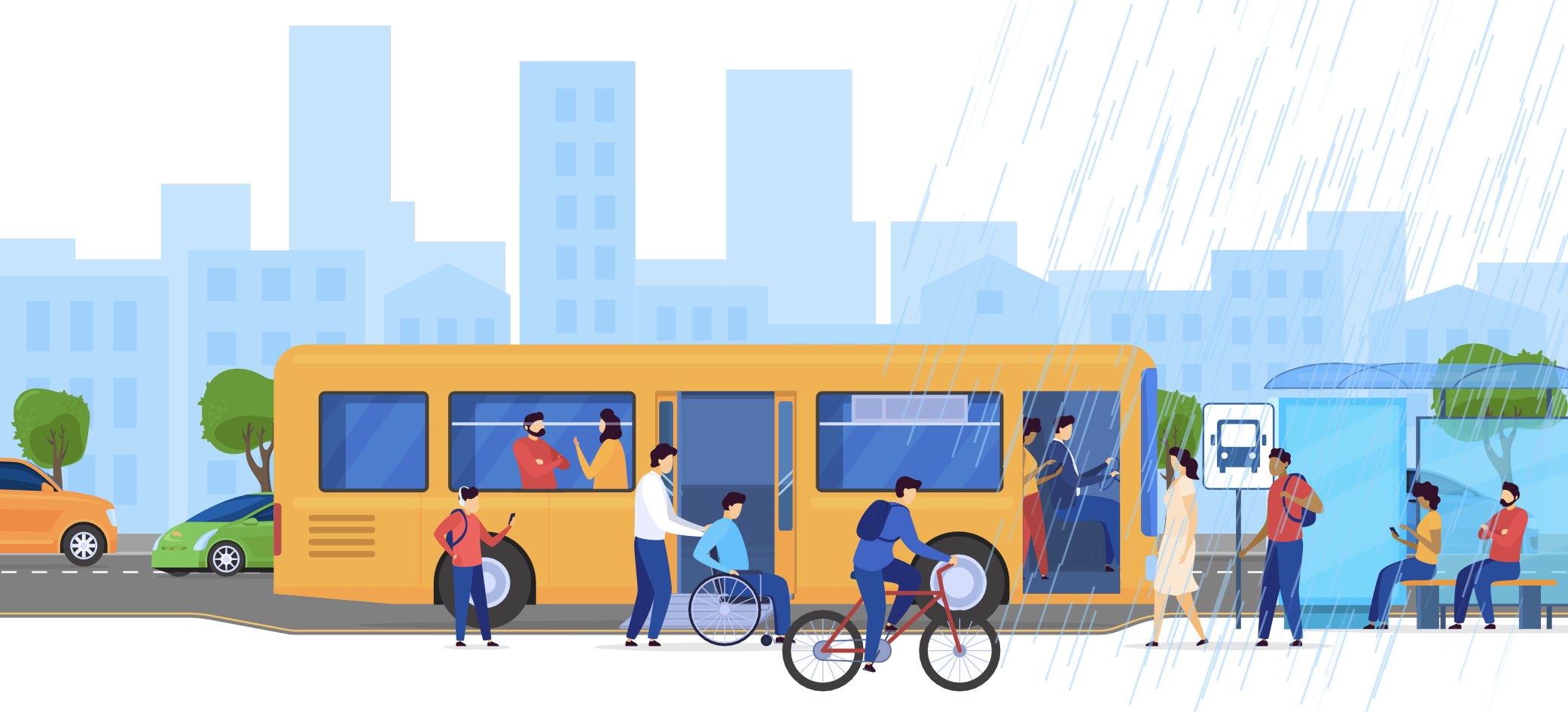Co-Designing Transit
CMU Human-Computer Interaction Institute project on the future of transit work and human-machine teaming with transit automation technologies
View the Project on GitHub Augmented-Design-Capability-Studio/codesigningtransit

Co-Designing the Future of Transit
Led by researchers at Carnegie Mellon University, this project aims to explore and shape the future of transit in an era increasingly influenced by automation technologies. While promising, the introduction of automated vehicle technology presents significant operational and safety challenges, especially in the intricate and unpredictable realm of public transit. Our research emphasizes that despite advancements in automation, skilled human operators will remain indispensable for navigating complex environments and ensuring passenger safety.
In collaboration with the AFL-CIO Technology Institute, the Transport Workers Union of America, and the Amalgamated Transit Union, our work aims to co-design future transit by directly engaging people on the frontline: bus operators and riders.
Our research seeks to inform and influence policy and practice and strives to create a just, safe, and efficient future for public transit, where technology complements and enhances human work rather than replaces it. By directly engaging with those who operate and use public transit, we aim to co-design systems that leverage technological advancements and prioritize human experience and societal well-being.
Through this project, we aim to:
- Deepen understanding of the potential impacts of high-level automation on public transit, focusing on bus operators’ roles, responsibilities, and well-being.
- Foster participatory design processes, engaging front-line workers and transit riders in developing future transit systems.
- Evaluate the integration of driver assistance automation technologies and their influence on operator workload, safety, and passenger experience.
- Advocate for proactive measures in policy, training, and infrastructure to prepare for the transition toward increased automation in transit operations.
- Develop recommendations for policymakers, focusing on the implications of automation on transit work, safety regulations, and data-driven oversight of automated transit operations.
Publications
-
Hunter Akridge, Sarah Fox, Alice Xiaodi Tang, and Nikolas Martelaro. 2025. Health & Safety Sidelined: The Need For Effective And Non-Punitive Reporting Mechanisms In Transit Work. Safety21: US DOT National University Transportation Center for Safety, Carnegie Mellon University, Pittsburgh, PA, 2025.
-
Alice Xiaodi Tang, Hunter Akridge, Nikolas Martelaro, and Sarah Fox. 2025. At the Breaking Point: How Bus Operators Cope with Transit Technology Failures and What That Can Tell Us About the Integration of Future Innovations. In Proceedings of the ACM Conference on Designing Interactive Systems (DIS’25).
-
Hunter Akridge, Alice Xiaodi Tang, Nikolas Martelaro, and Sarah Fox. 2025. Punctuated and Prolonged: A Workers’ Inquiry into Infrastructural Failures in Bus Transit. In Proceedings of the ACM on Human-Computer Interaction (CSCW’25).
-
Hunter Akridge, Bonnie Fan, Alice Xiaodi Tang, Chinar Mehta, Nikolas Martelaro, and Sarah Fox. 2024. “The bus is nothing without us”: Making Visible the Labor of Bus Operators amid the Ongoing Push Towards Transit Automation. In the Proceedings of the ACM Conference on Human Factors in Computing Systems (CHI ’24), May 11–16, 2024, Honolulu, HI. ACM, New York, NY, USA
-
Nikolas Martelaro1, Sarah Fox1, Jodi Forlizzi, Raj Rajkumar, Christopher Hendrickson, and Stan Caldwell, How to Make Sense of Bus Transit Automation: Considerations for Policy Makers on the Future of Human-Automation Teaming in the Transit Workforce. Traffic21: A Transportation Research Institute of Carnegie Mellon University, Pittsburgh, PA, 2022. 1The first two authors contributed equally
Team
- Sarah Fox, Principal Investigator - Assistant Professor, Carnegie Mellon University
- Nikolas Martelaro, Co-Principal Investigator — Assistant Professor, Carnegie Mellon University
- Hunter Akridge - Research Associate, Carnegie Mellon University
- Alice Tang - PhD Researcher, Carnegie Mellon University
Contact
For inquiries about our research or to get involved, email codesigningtransit@andrew.cmu.edu
Acknowledgements
This research is generously supported by Traffic21, a transportation research institute at Carnegie Mellon University funded by the US Department of Transportation.
This research is in collaboration with the AFL-CIO Technology Institute, the Transport Workers Union of America, and the Amalgamated Transit Union.